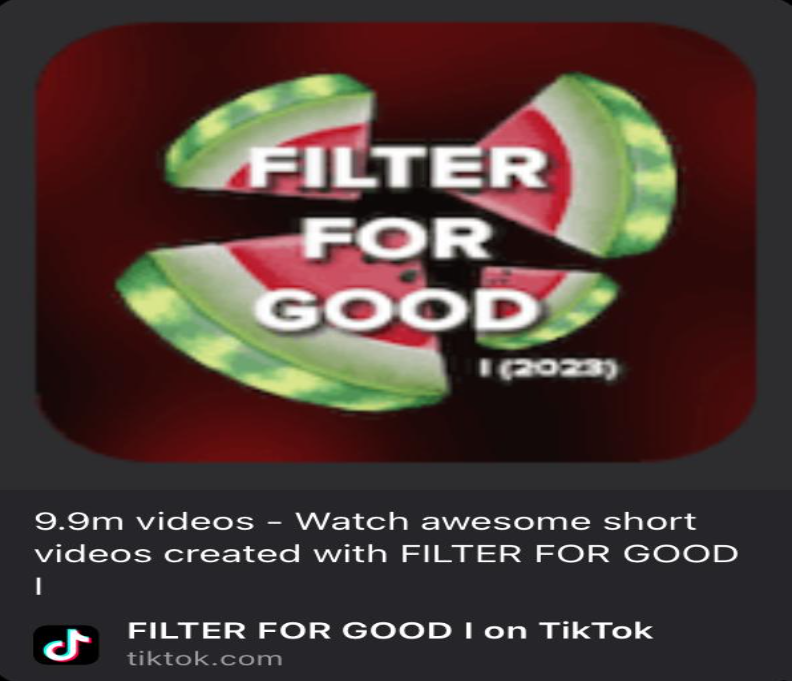Social media has proven to be an effective platform for fundraising over the years. In the wake of the Oct. 7 Hamas attack, this capability has taken center stage on platforms such as TikTok. Within a concise two-minute timeframe, users have harnessed the power of TikTok to generate support for Gaza. Notably, on Nov. 6, augmented reality (AR) creator Jourdan Johnson introduced the ‘filter for good’ on TikTok. This inventive filter engages users in a simple tracing game where they guide a watermelon along a squiggly line to collect seeds. The interactive process contributes funds through TikTok’s Effect Creator program, with donations escalating each time the filter is utilized.
Johnson commented to Mashable, “The day before I published the filter, I had come across a TikTok creator who made a video explaining that they were a part of the Creativity Program Beta and would be donating the earnings from that video. I saw that and was inspired — I was a part of the Effect Creator Rewards program and had the potential to earn money from a filter, so I could do a similar thing. So on Nov. 6, I created the effect, submitted it, and by the late afternoon it was published and active.”
The Effects Payout Program offers a unique opportunity for recognized creators—those who have published at least five effects on the app, each used in 1,000 videos—to claim their viral TikTok effects. This includes the option to receive direct payments for their use and access paid promotion opportunities. Program members are categorized in a tiered system, distinguished by badges reflecting the number of effects and their usage since joining. This structured ranking system recognizes and rewards creators for their contributions to the TikTok community.
The origin of the symbolic association between a watermelon and Palestinian identity dates back to the Six-Day War in 1967, marking the onset of its significance in expressing Palestinian solidarity. The adoption of the watermelon as a symbol became particularly notable due to restrictions on public displays of the Palestinian flag in Gaza and the West Bank following territorial control changes. In response, Palestinians began utilizing the watermelon, which holds the same colors as the Palestinian flag—red, black, green and white.
Since Oct. 7, the utilization of the watermelon symbol has witnessed a notable surge. The watermelon has emerged as a form of algospeak, effectively disseminating its message, particularly on platforms such as TikTok. Notably, the watermelon emoji on TikTok has garnered an impressive 1.2 billion views. Seizing the opportunity, Johnson, strategically harnessed this popularity to drive fundraising initiatives. Within a week of the filter’s debut, it spawned 6.5 million videos and generated $14,000.
“We did it! We have reached the maximum reward and have generated $14k for humanitarian aid,” exclaimed Johnson in a TikTok comment.
She consistently shares daily content updates on the funds raised through the TikTok filter, aiming to contribute the entirety to charities supporting Gaza’s residents. Leveraging TikTok’s Effect Creator program, filters can generate revenue after amassing at least 200,000 videos within the initial 90 days, signifying the potential or actualized earning of $14,000.
On TikTok, the watermelon filter has gained widespread popularity as creators actively engage with it and encourage their followers to join in. Individuals are limited to posting one video daily using the filter; multiple posts within a day still constitute a single use of the filter. As per the guidelines for rewards, the accumulated funds are disbursed to creators on the 15th day of the subsequent month. Consequently, the total donations from the watermelon filter are anticipated to be received in December.
“I believe that an effective way to make an impact is by utilizing what you know, and if you want to involve other people, lean into their known behaviors,” Johnson stated in a follow-up video on Nov. 9.

